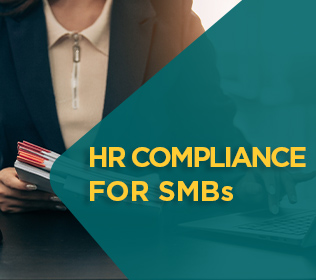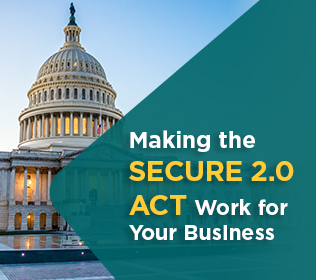
3 Tips On How To Deliver Bad News To Employees
Communicating bad news is tough. It’s often even tougher in professional settings, where the bad news could have long-lasting impacts on many facets of an employee’s life. Keep reading to learn about communicating bad news to employees for a few tips that could help make difficult conversations with employees a bit easier for all.
1. Be Honest and Empathetic When Sharing Difficult News
It might be tempting to try to ameliorate the news you’re about to deliver, but that could end up making things a lot worse. According to advice from SHRM, the best way to communicate bad news is to start by admitting to your employee that what you’re about to share is awkward, difficult, or perhaps less than ideal. This not only more truthfully prepares your employee for what they’re going to hear, but it’s also a lot more empathetic than a false sense of positivity.
If the news is about an employee not getting a raise or promotion, for example, an attempt to “remain positive” could undermine the employee’s future trust in management and lower their morale. Being empathetic to the disappointment and offering the right support, on the other hand, could encourage the employee to make positive changes.
When offering empathy, however, experts suggest to refrain from apologizing – again, while it might be tempting to offer a sense of consolation to the employee, it could come off as ingenuine when paired with difficult news. In the case of a termination, simply saying “I’m sorry” could also be considered admission of fault on the part of the employer in a legal battle if the situation escalates.
2. Straight to the Point: Be Direct With Employees
When delivering bad news, it’s important to cut right to the chase. Beating around the bush only prolongs a process that’s better accomplished quickly; and much like a false sense of positivity, it won’t make employees feel any better. In most cases, employees are likely to have a sense that something isn’t right – delaying the news with unnecessary anecdotes or justifications only heightens their sense of anxiety.
In many cases, employees may not even pay attention to anything said before the actual news, as they’re simply “waiting for the shoe to drop”. If the news is unexpected, long stories or excuses beforehand could lead employees to feel even worse once they do realize what’s going on.
3. Get Help From Experts: Access Additional HR Support
From informing employees about poor performance to pay reductions due to COVID-19 and terminations, employers often don’t know the best way to handle the most serious conversations. This is because many small and mid-size businesses (SMBs) employ agile HR teams of skilled professionals who wear multiple hats. While these kinds of teams are amazingly talented at what they do, they don’t always have the full gamut of HR expertise required to manage every situation that may arise – especially when times get rough. And as these businesses grow, it can become increasingly difficult to effectively manage every HR challenge without additional help.
A PEO or “professional employer organization” partners with small businesses that typically have small HR teams to offer full-spectrum HR support. PEOs aren’t a replacement for HR teams, but rather an extension of them. When it comes to having difficult conversations with employees, a PEO’s certified HR specialists can guide SMBs on the best ways to approach the conversation, offer best practices and tips, and even step in to mediate the conversation as needed.
There are ups and downs to running any business, and sometimes it’s necessary to make difficult decisions. While it’s never easy to communicate changes that could upset employees, there is a right and wrong way to do so with our 3 tips on communicating bad news to employees. The next time your business has to deliver some tough news to an employee, remember to be concise, direct, and empathetic without being apologetic. And if needed, consider enlisting the professional support of a PEO and its certified HR specialists. Learn more at www.prestigePEO.com.




